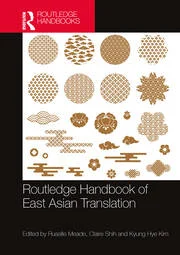Book chapter by Nicole M. Mueller on the historical and institutional contexts that shaped Japanese retranslation
 Since ancient times, translation into Japanese has facilitated innovation across a variety of disciplines. Translators functioned as mediators of a foreign culture that was commonly perceived as superior. This tradition became all the more essential after Japan’s forced reopening in the late 19th century after 200 years of self-imposed cultural isolation. In this context, retranslations of Thomas Mann’s classic novel Tonio Kröger form a crucial interface between Japan’s academic, educational, and literary history shaped by the elitist kyōyōshugi movement and its idealisation of 19th century European culture. Based on the digitally augmented analysis of 15 such retranslations, DIJ researcher Nicole M. Mueller retraces how 20th and 21st century Japanese retranslation can be understood as the result of an ongoing negotiation between heteronomy and autonomy toward the West that shaped Japan’s cultural self-image. “Japanese Retranslations in the Twentieth and Twenty-first Centuries: Between Heteronomy and Autonomy toward the West” is published in the Routledge Handbook of East Asian Translation.
Since ancient times, translation into Japanese has facilitated innovation across a variety of disciplines. Translators functioned as mediators of a foreign culture that was commonly perceived as superior. This tradition became all the more essential after Japan’s forced reopening in the late 19th century after 200 years of self-imposed cultural isolation. In this context, retranslations of Thomas Mann’s classic novel Tonio Kröger form a crucial interface between Japan’s academic, educational, and literary history shaped by the elitist kyōyōshugi movement and its idealisation of 19th century European culture. Based on the digitally augmented analysis of 15 such retranslations, DIJ researcher Nicole M. Mueller retraces how 20th and 21st century Japanese retranslation can be understood as the result of an ongoing negotiation between heteronomy and autonomy toward the West that shaped Japan’s cultural self-image. “Japanese Retranslations in the Twentieth and Twenty-first Centuries: Between Heteronomy and Autonomy toward the West” is published in the Routledge Handbook of East Asian Translation.